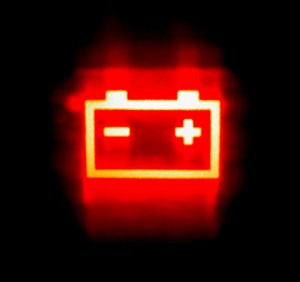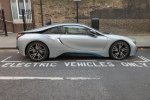Why do EVs need batteries?
by Chris
(Richardson, Texas, USA)

Are Batteries Really Necessary?
Why use batteries? Batteries are heavy, and maintenance hogs. Why not integrate a diesel powered generator, and use an AC motor to power the car? That way, there is no need for an inverter, and DC controller.
Hi, Chris -
I see what you're saying.
Electric motors are better, more efficient, than internal combustion; however, they sort of lose it on the FUEL side with those heavy, high-maintenance batteries. Why can't we have the best of both worlds, then - skip the batteries, and power the electric motor with a diesel generator?
Here's the problem:
The power demands of a moving vehicle are HIGH. Sometimes you go up hills, sometimes you step on the accelerator to join the freeway crowd, sometimes you've got three oversized teenagers in the back. If you've got a generator pumping out electrons, and there's no storage device (such as a battery pack), that generator's got to produce electrons at exactly the same rate as you're demanding them. I don't know of a generator capable of that.
Second - as I am fond of saying - generators are no friend of the environment. Regular cars benefit from years of pollution-control technology...generators don't have that, because they're not required to.
Anybody else want to comment?
Regards,
Lynne


